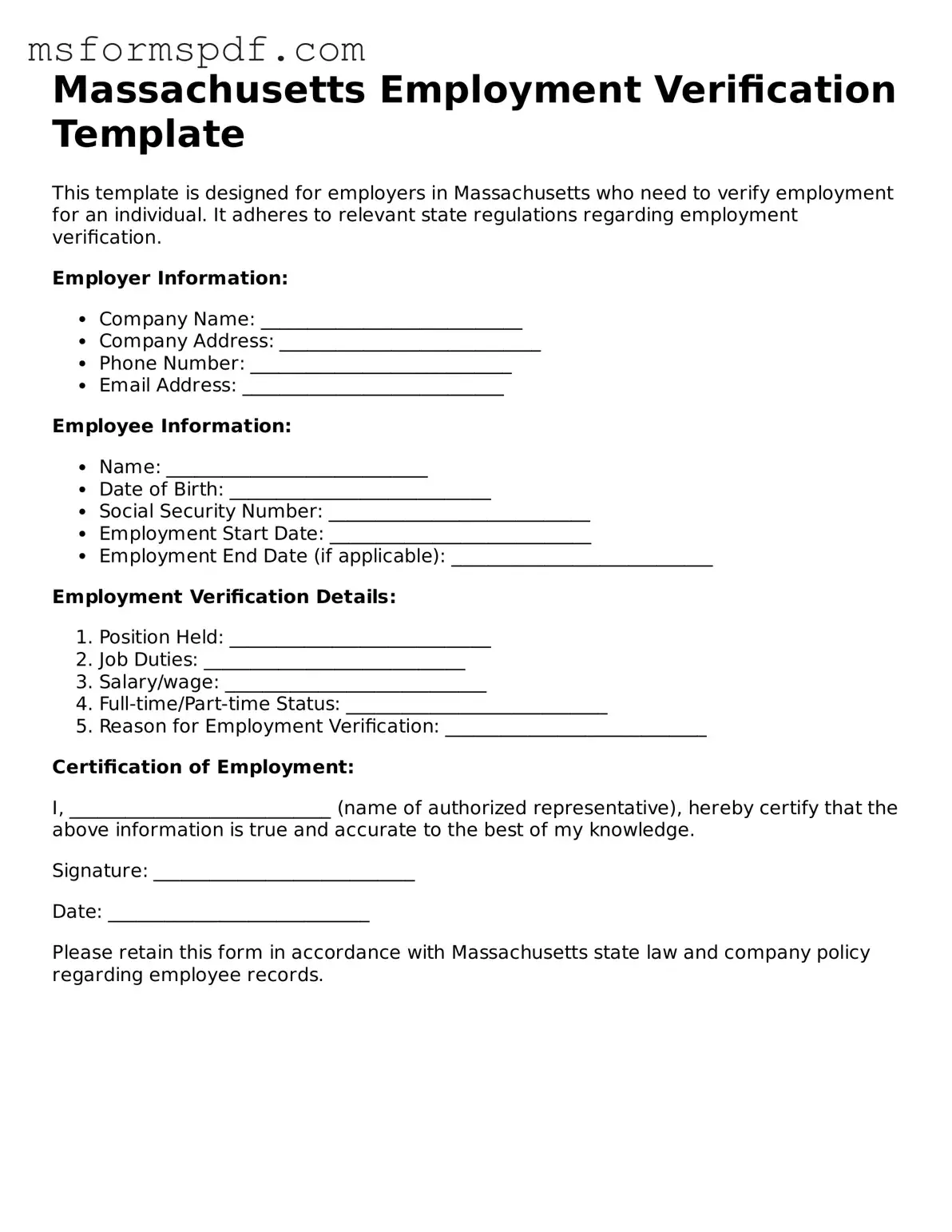Blank Massachusetts Employment Verification Document
The Massachusetts Employment Verification form is a document used by employers to confirm an individual's employment status and details. This form plays a crucial role in various processes, including loan applications and background checks. Understanding its purpose and requirements is essential for both employers and employees in the state.
Launch Editor Now

Blank Massachusetts Employment Verification Document
Launch Editor Now

Launch Editor Now
or
➤ Employment Verification PDF Form
Just a moment — finish the form
Fill out Employment Verification digitally — no scanning, no printing.